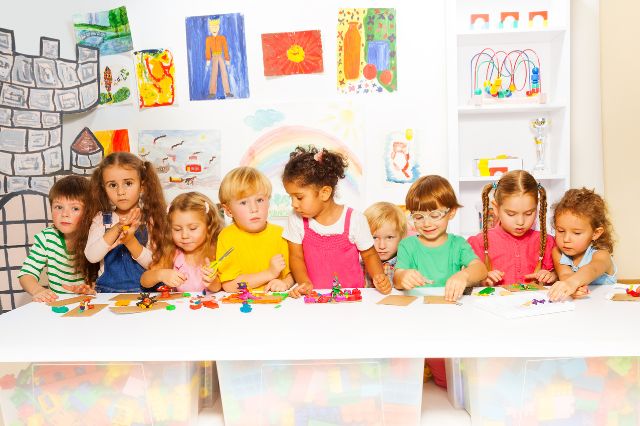It’s essential to select the best kindergarten for your child. It can have a significant impact on their early education and development. But with so many choices, it’s easy to feel swamped and need help knowing where to begin.
This article gives you the best kindergarten selection tips for parents to help you navigate this critical choice. These tips will empower you to make an informed decision that sets your child on a successful educational journey.
1. Start Early
Choosing the right kindergarten for your child is not a last-minute decision. Begin your search well in advance. Ideally, you should start exploring your options a year before your child is set to start kindergarten. This allows you ample time to research, visit schools, and ensure you secure a spot in the school that best aligns with your child’s needs and your family’s values.
Luckily, kindergartens like Woodlands Long Day Care & Kindergarten have online platforms, and it’s a real help for parents. You can check out what programs they offer, book a campus tour, and ask them any questions. This makes your life easier and shows that they’re all about making things straightforward and accessible for you. So, go ahead and explore from the comfort of your home.
2. Consider Your Child’s Needs
No two kids are exactly alike. When you’re on the hunt for the perfect kindergarten, it’s vital to remember that each child has their own unique set of needs and preferences. So, while you’re at it, look at your child’s personality, how they like to learn, and if they have any special requirements that need addressing.
3. Research Educational Approaches
Kindergartens can have unique teaching approaches. Whether it’s Montessori, Waldorf, or the traditional style, it’s essential to understand each one. This involves getting a feel for their philosophy and how they go about teaching.
You’ll want to pick the one that best fits your child’s learning style and your family’s values. For example, Montessori encourages independence and self-guided learning, while Waldorf leans towards creativity and imaginative play.
4. Visit Multiple Schools
Visit several kindergartens in your area. This hands-on approach allows you to observe the learning environment, meet with teachers and staff, and ask questions. During your visits, pay attention to the classroom setup, teacher-to-student ratios, safety measures, and the overall atmosphere. Feel free to ask about the curriculum, extracurricular activities, and special programs they offer.
5. Ask For Recommendations
Seek recommendations from other parents and friends who have already been through the kindergarten selection process. Their insights and experiences can be invaluable in helping you choose the right school for your child. These personal recommendations provide additional information and a different perspective that might not be apparent during a school visit.
6. Consider Location and Commute
The location of the kindergarten is a practical factor to consider. You’ll want a school that is convenient to get to, as long commutes can be tiring for both you and your child. In addition, consider after-school activities and whether the location allows easy drop-offs and pickups.
7. Examine Safety Measures
Your child’s safety should always be at the top of the list. When checking out a kindergarten, ensure they have all their safety ducks in a row. That means looking into things like background checks for the staff, secure entrances, and what they’d do in an emergency. It’s also a good idea to ask about their approach to preventing bullying and how they handle health and hygiene.
8. Check Accreditation and Licensing
Verify that the relevant educational authorities accredited and licensed the kindergarten. Accreditation strongly indicates a school’s commitment to meeting specific educational standards. Licensing ensures that the school complies with health, safety, and academic regulations.
9. Evaluate Teacher Qualifications
The qualifications and experience of the teachers at the kindergarten are pivotal in your child’s educational journey. Ask the teachers about their educational backgrounds and credentials. Experienced and well-trained educators are more likely to provide a high-quality learning experience.
10. Check Parental Involvement
Some kindergartens encourage active parental involvement, while others may have a more hands-off approach. Consider your availability and willingness to be involved in your child’s education. Find a school that aligns with your preferences in this regard.
11. Understand Costs and Financial Aid
Kindergarten costs can vary significantly, and it’s essential to understand the tuition fees and any additional charges for materials, uniforms, or extracurricular activities. Inquire about financial aid options or scholarships if you have concerns about affordability.
12. Check the School’s Reputation
Research the school’s reputation in the community. Online reviews and testimonials from current and former parents can provide valuable insights. A school with a good reputation is more likely to provide a positive learning experience for your child.
13. Give Online Public Kindergarten a Shot
When it comes to your child’s education, homeschooling for kindergarten is an option worth considering. It lets you provide your child with a solid educational foundation, all while tailoring the curriculum to their unique interests and needs. Plus, it strengthens the bond between you and your little one, creating a nurturing learning environment at home.
Furthermore, you can jazz up the learning experience with a bunch of cool educational stuff and activities, making sure your child gets a bit of everything in their education. But don’t forget to mix in some social time and group activities so your kid gets a full-on, well-rounded start to their learning adventure.
Kindergartens: More than Academics – Fostering Social and Emotional Growth
When you’re deciding on the perfect kindergarten, it’s not just about academics. It’s also about helping your child grow socially and emotionally. The early days of education can be the beginning of a lifetime love for learning. So, when choosing, think about what suits your child best and aligns with your family’s values.






